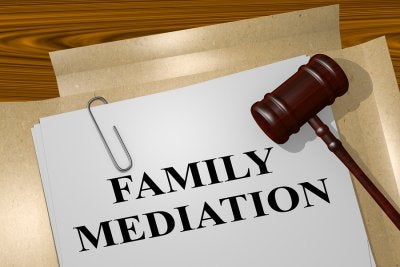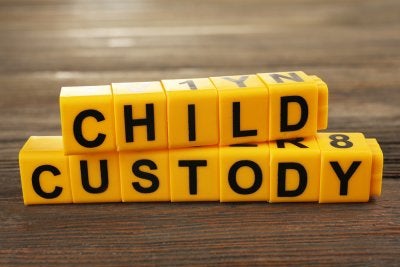-
Should You Consider a Trust?
A trust is a financial tool often used during the estate planning process . When a trust is created, a third party, called a trustee, is given control of financial assets meant for an inheritor or beneficiary. During the creation of your trust, you and your estate lawyer serving Baltimore can choose the type of trust you want and determine the terms that must be fulfilled before your beneficiary gains control of the trust himself. In many cases, trusts are passed on to beneficiaries upon the settlor’s death or when the beneficiary reaches a certain age. Creating an irrevocable trust is an excellent way to reduce estate taxes after your death; furthermore, the property and assets that you place into a trust does not go through the probate process. These factors ensure that your chosen beneficiaries will receive the amount you wish them to inherit in full and much more quickly than if legal proceedings are needed to determine inheritance.

-
The Benefits of Mediation in Child Custody Disputes
During a divorce, child custody is a particularly contentious issue. Clashes over custody can do lasting damage to the relationships between parents and children, especially when coming to an agreement involves nasty courtroom battles. Mediation offers an alternative that can be easier on families. Talk to a mediation lawyer in Baltimore if you are facing a child custody dispute to see if you could come to an agreement outside of the courtroom that works for your family. Here are some of the benefits to choosing mediation in your custody dispute.

Less Stress for Parents
Mediation is not adversarial, as disputes decided in the courtroom can be. The goal of mediation is for all parties to work together to come up with a solution that is right for everyone. There are no winner or losers in mediation, so the overall process is less overwhelming. A third-party representative will guide the mediation process and ensure that no one’s rights are violated, so you can focus on making an agreement instead of being on guard.
Less Stress for Kids
When parents are locked in a custody dispute, their animosity almost inevitably encroaches on their children’s well-being, even despite the best intentions. Kids may feel pressured to choose sides or may hear one parent talking disparagingly about the other parent, causing confusion and fear. Because mediation is easier on parents, it is also easier on kids. They may also get an outcome that is better for them, since the focus of everyone in mediation is to make a plan that is right for the children.
Improved Long-Term Cooperation
Mediation helps to set the tone for what the new normal will look like after a divorce. When parents cooperate during mediation and come up with a child custody plan they both feel good about, they walk away feeling encouraged about their abilities to co-parent even after divorce. This kind of cooperation sets the stage for future issues to be negotiated collaboratively rather than in an adversarial manner.
-
Estate Planning for Domestic Partners
For couples who choose domestic partnerships over marriage, protecting legal rights is essential. While married couples enjoy certain privileges under the law, domestic partners are not always afforded the same rights. By working with an estate lawyer in Baltimore with experience with domestic partnerships, you can make plans for your estate and feel confident that your loved ones will be protected after your death.
For domestic partners, the law does not assume that your surviving partner is your intended heir in the same way it does for married couples. This distinction could cause issues for your estate in the probate process, as well as uncomfortable family disputes. By drawing up estate planning documents, you can ensure your estate is administered as you intend. With the help of an estate lawyer, you and your partner can draw up individual wills and various trusts to make your final intentions clear. It is also possible to create trusts that benefit your partner while maintaining your privacy. Consult with an estate lawyer to determine the best estate planning procedures for your specific case.

-
A Look at the Legal Process for International Adoptions
Adopting a child is a wonderful way to grow your family. However, international adoptions have restrictions that do not apply to domestic adoptions; working with an attorney familiar with family law in Baltimore can help reduce stress associated with and speed along the international adoption process. The country of origin of the child can influence the ultimate adoption process, but all international adoptions require a few basic determinations. First, you will need to undergo a home study and apply to the U.S. Citizenship and Immigration Services for the ability to adopt. Next, you must file a petition and ensure the child you wish to adopt is eligible to immigrate to the U.S. Once the adoption process is complete, you must obtain an immigrant visa for the child so he can be brought into the country.
Each year, thousands of children are adopted from overseas into American families. Your family law attorney can help you throughout the adoption process with services that include assistance with finding an appropriate adoption service provider and adoption mediation if necessary.

-
Tips for Making Provisions for Guardianship and Custody in Your Will
Drafting a will ensures that you are able to clearly state your wishes regarding issues such as asset inheritance and child custody or guardianship following your death. Whether you are creating a will for the first time or updating a previous document, it’s important to consider several factors when making provisions for guardianship in your last will and testament in Baltimore. Working with an experienced lawyer can help you ensure that the provisions you make are appropriate and beneficial for your children in the event of your death.

Tips for Naming Guardians
During the creation of your will, you should name one primary and one secondary guardian for each of your children currently under the age of 18. The purpose of naming a secondary guardian is to ensure your child is cared for in the event that your primary choice does not wish to or cannot fulfill the obligations of guardianship. It is typically best to name only one primary guardian, as naming two individuals could lead to conflict over custody in the future; however, naming both members of a stable couple or marriage is acceptable if you want both parties to have legal control over your child’s future.
Tips for Handling Finances
In addition to naming a guardian to retain custody of your children in your will, it’s also important to consider how you will provide financial support for your children in the event of your death. You may wish to appoint a separate individual to control the financial aspects of your child’s estate if you feel that the individual to whom you have granted guardianship may not be the best person to handle your child’s financial future. Alternatively, you can opt to set up a financial trust for your children, which is designed to meet their ongoing financial needs; when creating a trust, you will need to name a trustee in charge of handling these assets.
-
Understanding Advanced Directives
Wills are legally binding documents that state your wishes regarding issues such as the division or inheritance of your personal assets and the custodianship of your children. Like wills and trusts, an advanced directive is a legal document designed for use in the future. This document can be created at any time with the help of your attorney in Baltimore .
An advanced directive gives instructions regarding important healthcare decisions. This document is used in the event that you cannot speak or communicate for yourself, whether due to age, disease, or an accident. An advanced directive may be used to give healthcare power of attorney to an individual of your choosing, or may override your family’s wishes if they conflict with yours. This short video provides more information about advanced directives and their function.
-
What Are Some of the Common Issues in Child Custody Disputes?
Establishing a child custody, child access, and visitation arrangement (often known as a Parenting Plan) does not need to be a contentious battle. Family mediation serving Anne Arundel County can help the parents reach solutions that work for both households. During mediation, the parents may be reminded that they must come to agreements that are for the child’s best interests, which may not necessarily serve the interests of both parents. The mediation process can help parents resolve a number of disputes.

Decisions for the Child’s Upbringing
Legal custody refers to the parental right and responsibility to make major decisions on behalf of the child. These include decisions regarding the child’s education, health, religion/religious training, and welfare. During mediation, both parents can explain their preferences and goals for the child’s upbringing, and work toward solutions that benefit the child’s well-being. The parties can also define a dispute resolution agenda to help the parties work through future problems should one arise.
Access to the Child
A lawyer may recommend mediation for child custody disputes that involve access to the child. It is becoming more and more common for parties to share custody. Each family is different and there are various schedules such as “week on/week off”, 2/2/3, and many other alternative time sharing on 50/50 access. Even if the parents agree on the child’s primary residence, disputes may still arise regarding the parenting time or visitation schedule. For example, both parents may demand access to the child on holidays, birthdays, and weekends. Since ongoing access to both parents is generally beneficial for children, compromises often involve rotating weekends, holidays, and school vacations.
Access to Information About the Child
Mediation can help the parties think about and agree on how to exchange information about the childnre. Each parent should have unfettered access to school records, medical records, and similar information. In mediation, the parents can agree on appropriate methods of exchanging information and which information should be exchanged. This includes exchanging parent/teacher conferences, doctor’s appointments, report cards, interim reports, activity schedules, etc.
Uniformity of the Homes
Household uniformity is a crucial issue in child custody. Children need stability, regardless of whether are young, tweens, or teenagers. Children who are expected to follow two different sets of household rules, abide by different bedtimes and curfews, and meet two different standards of expectations can become confused, frustrated, resentful, and act out. Children who are in non-divorce homes are good at dividing and conquering parents. Children of divorce are better because parents may not have a good relationship. Mediation can help identify this issue so that the children know the parents are unified even if they are no longer together. By considering these issues during the Parenting Plan stage, the parties will
-
FAQs about Mediation for Divorce and Custody Disputes
Divorce is always a difficult process, but for some couples, mediation can make it easier. During divorce mediation, a neutral third party can help you and your spouse negotiate an amicable end to your marriage with equitable decisions about property, finances, and child custody. Throughout the mediation process, the mediator will not provide legal advice to either party, but can answer questions about how the courts work and how to reach an ideal settlement. By choosing mediation, many couples are able to avoid some of the acrimony that can occur at the end of a marriage and maintain a healthy relationship for themselves and their children. Find out more about divorce mediation in this infographic from Mummert Law . Our experienced attorney can assist with the mediation process near Baltimore and ensure you and your spouse arrive at mutual agreements. Please help others dealing with divorce and custody issues understand this alternative to the courtroom by sharing this information.


